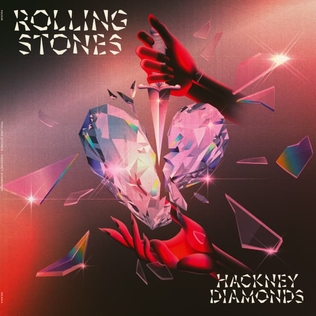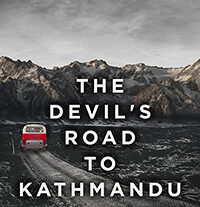
The new Rolling Stones album, Hackney Diamonds, is almost perfect. Reviews have been glowing. The band’s best long-player since Some Girls, some hacks write (Variety claims it’s ‘Their Liveliest Work in 40 Years’). Macca’s on it. The irreplaceable Charlie, bless him, plays on a couple of tracks and long retired Bill (who?) does something on another. Lady Gaga (?) is just brilliant. It’s music history!
In fact, the songs on Hackney Diamonds are consistently awful and sound like they were written by a free-of-charge artificial intelligence app. While Mick, Keith and Ron, considering they’re approaching the age, looks and wealth of mummified pharaohs, are technically on top form, they never sound like a band playing in a room together. The songs are not quite listenable facsimiles of Stones classics, consistently lacking the spark, wit and relevance of their masterpieces (Go back to Some Girls, guys). But let’s not write their first album effort in 17 years off altogether.
The Rolling Stones have almost always been reliably uncanny and brilliantly aloof observers of our Zeitgeist and this hasn’t changed. Their latest oeuvre looks like RocknRoll, its moving parts sound like RocknRoll, but it isn’t RocknRoll. It’s a construct of essential parts, whose blue prints have been misplaced, forgotten, sold. And this makes Hackney Diamonds wildly contemporary, an astute if accidental commentary on the wider cultural, political and social apocalypse we have slithered into, mostly on a voluntary basis (Democracy, remember?).
Hackney Diamonds, a record everyone will have forgotten about in three days, is a frail cultural echo (yes, yes, I know I am making it more important than it really is) of the post WW2 social contract that was always more of an aspiration than a reality and that died with Thatcher and Reagan. Since then, this corpse of a suggestion of who gets what has been re-amplified in media and politics (with all its attendant counter-cultural noises – Patti Smith advertises luxury suitcases), because there’s nothing out there, other than brutal neo-liberal capitalism displacing the last vestiges of democracy or all out fascism.
Western governments no longer serve or are capable of representing, never mind governing, their fragmented, atomized societies, any more than the Stones are a functioning RocknRoll band. Solidarity is dead. Hate speech is normal. People no longer agree on what’s reality, while more and more of that is generated by computers. That’s pretty much what Hackney Diamonds sounds like.
RocknRoll, the erstwhile soundtrack of the great cultural post-war renaissance, will never die, they say, thinking that throwing more money at it and raising ticket prices to Olympian heights might solve the problem. But it doesn’t. It just alienated and angers the riff-raff, the people who can’t afford a Netflix subscription or a pair of 300$ trainers made in a gulag in China.
I walked into the Adidas superstore in Berlin with my nephew the other day. At first glance, the retail space looks like it’s been taken over by a Greenpeace campaign. It’s radical. It’s definitely hip. Everything is about sustainability. Dance music tumbles from invisible speakers. Slogans remind us that Berlin will remain green (while its green spaces are filled or under threat from being filled with retail garbage). We will consume our planet back to health, we’re told. This mantra dominates every consumer PR campaign in the Western world. It has turned nuclear power into green energy. It makes mini-fascist Elon Musk look like an environmentalist. If only we buy electric cars and shower a minute less, the planet will finds its mojo again. It’s a lie we readily buy into, the same way we buy into the idea that the Stones are a RocknRoll band rather than a legacy business like Adidas that’s only interested in profits and survival and will do anything (even turn their shops into plastic plant jungles or record a worthless new album) to keep the illusion going that there’s freedom after yet another traumatic 40 hour week, that the food and water we consume is not poisoned, that our tax is not used to drown people who fled their countries after we ruined them … the list of crimes against us, the people, committed as often as not with our collusion, would take longer to read out than the time that’s passed since Thatcher’s death (which is not nearly as long ago as the release of the last (good or otherwise) Rolling Stones album).
Luckily perhaps, the kids have gotten off this sinking ship. No, they haven’t become community-oriented revolutionaries. The Left is dead, remember. Instead they’ve tuned out and fled into their machines. They’re into gender equality and veganism which makes those of us used to the good life of unlimited self-gratification nervous. No one in office or on TV represents young people. Their collective and yet highly individualistic marriage to their screens doesn’t afford them opportunity to escape the clutches of mindless consumerism. But it’s offered them an alternative narrative, something fresh, a new sound and style, the illusion of being able to, if not create a better world, then at least be able to ignore this one.
And that, after all, was what got the Rolling Stones started in the first place.

